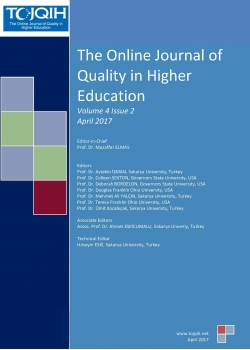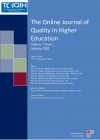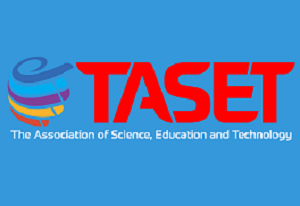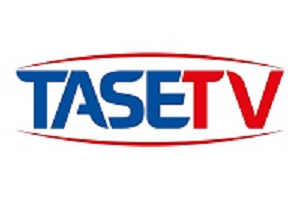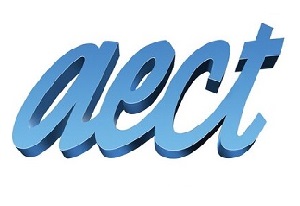TOJQIH - Volume 4 - Issue 2 - April 2017
 A PHENOMENOLOGICAL APPROACH TO CONFLICT RESOLUTION IN AFRICA: A REFLECTION ON JOHN DONNE’S POEM: “NO MAN IS AN ISLAND” AND J P. CLARK’S “THE CASUALTIES.”
A PHENOMENOLOGICAL APPROACH TO CONFLICT RESOLUTION IN AFRICA: A REFLECTION ON JOHN DONNE’S POEM: “NO MAN IS AN ISLAND” AND J P. CLARK’S “THE CASUALTIES.” Jimba Noah Daku, Amos D. Bivan, Dogo M. Michael
Abstract:
Conflict is inevitable, and is as old as the history of mankind. Conflict forms bulk of our local, national and
international news headlines. Just like the Eastern and the Western parts of the globe; Africa as a continent is
also bedeviled by lots of conflicts, ranging from internal to external ones. This paper has implored a
phenomenological approach to conflict resolution in Africa with Nigeria as a microcosm; hence, conflict has
defied several empirical approaches. John Donne’s “No Man is An Island” and J P. Clark’s “The Casualties” are
engaged in this paper to demonstrate the interrelatedness of man and the effects of conflicts in human societies;
especially in a multilingual and multicultural society like Nigeria. This paper summits that, conflict could be
constructive as well as destructive; depending on how it is handled. And that we all are victims of conflicts,
either directly or indirectly. The paper ends with a wakeup call for tolerance and mutual peaceful co-existence
amongst the different religious bodies, ethnic groups and races as the best alternative to conflict management;
without which an enduring peace remains a mirage in the face of global terrorism.
 A REVOLUTIONARY APPROACH WITH RECOMMENDATIONS TO IMPROVE THE LEARNING QUALITY OF BANKING & FINANCE EDUCATION IN TURKEY
A REVOLUTIONARY APPROACH WITH RECOMMENDATIONS TO IMPROVE THE LEARNING QUALITY OF BANKING & FINANCE EDUCATION IN TURKEY Bulent GUNCELER
Abstract:
There are 33 Universities in Turkey who have faculties called Banking & Finance or similar names ( Same
profession taught at Junior Technical Schools are not included into this number ). In theory, it is expected that
the graduated people from these faculties are prepared to be employed as qualified staff for Banking Industry and
to the Finance Departments of the companies. However, let’s ask a very naïve question : “ Are they really ready
to take responsibilities when they finish the school ? “ If the question is answered honestly, most probably it will
be a definite NO! This reality is unfortunately discouraging to be optimistic.
This presentation is revealing the problems and reasons of this situation. Mainly, these are the deficiencies
coming from the educational methods in lecturing; excess feeding of unnecessary topics and lack of applied
activities during the training programs. We must admit the fact that, almost all of the students are finishing
“Banking and Finance “ profession without;
ď‚· Getting sufficient information on the organization chart of a bank or
ď‚· Seeing real-life examples of loans, customer accounts, funds transfers etc or
ď‚· Observing cash and vault operations or
ď‚· Getting involved with transaction processing, bank accounting or
ď‚· Joining to the audit activities of the bank or
ď‚· Having information on the IT infrastructure of a bank.
Almost all of above applies to finance activities of a company as well. As the banking field, an alumni who
finishes the school in 4 years usually has no material knowledge starting from check issuance to cash
management; inventory management to financing tools for a company. Therefore, by not having required
qualifications, they are not employed to important positions even if they can find jobs in these sectors..
The reasons of these problems can be categorized into following : a) Not adequate on-the-job training for the
students b) Lectures are taught in theory only, there is lack of workshops and/or product simulations c) The
number of business related (real life) courses are not enough compared to other theoretical academic topics d)
No finance labs or demo bank branch facility in the universities
This paper is providing recommendations to improve the quality of the education with suggestions in a
revolutionary approach by suggesting radical changes at the teaching methodology of the lectures. Some of these
recommendations may appear to be not doable but my approach is targeting to those officials who should think
once more to find solutions for improving the educational quality.
 AN ANALYSIS OF ACADEMIC AND SOCIO CULTUREL OPINION OF THE FOREIGN STUDENTS WHO CAME TO TURKEY VIA ERASMUS EXCHANCE PROGRAMME: THE EXAMPLE OF SELCUK UNIVERSITY
AN ANALYSIS OF ACADEMIC AND SOCIO CULTUREL OPINION OF THE FOREIGN STUDENTS WHO CAME TO TURKEY VIA ERASMUS EXCHANCE PROGRAMME: THE EXAMPLE OF SELCUK UNIVERSITY Seda ÇANKAYA
Abstract:
Erasmus Proggramme is a student exchange programme which finances by EU. This programme is enable
students to study one or two semester or intern some period in different country. The aim of this programme
providing new abilites, different experience, meet new cultures and etc. Selcuk University has participate to this
programme since 2005. From 2005 Selcuk University accepted many foreing student from EU countries each
semester.
The aim of this study is to identify the academic and socio-culturel opinion of students who came from various
countries of the Europe to Turkey via Erasmus exhange programme. The study group consist of 55 foreign
students who come to Selcuk University between 2014-2016 year. To understand opinion of the students survey
was applied. SPSS sofware programme was used to analysed the data. The results of the study show that students
had positive opinion during their study and they retured back with different experience even they had to
encounter some academic problems such us courses, language etc.
 AN EXAMINATION OF MASTERS AND DOCTORAL DISSERTATIONS REGARDING BOLOGNA PROCESS IN TURKEY ON THE DIMENSIONS OF QUALITY
AN EXAMINATION OF MASTERS AND DOCTORAL DISSERTATIONS REGARDING BOLOGNA PROCESS IN TURKEY ON THE DIMENSIONS OF QUALITY Çağrı ERKOÇ, Mustafa BAYRAKÇI
Abstract:
The aim of this study is to investigate the master’s and doctoral dissertations in Turkey on how the aspects of
Bologna Process and dimensions of quality in higher education are discussed. The idea of creating a common
higher education area throughout the Europe came in sight at the meeting in Sorbonne in 1998 by the declaration
of France, Italy, Germany and England’s ministers of education. Following this meeting the foundations of
Bologna Process took shape and the process was launched with the participation of 29 countries in 1999. The
effects of the process were not only apparent in European higher education system but affected Turkish higher
education as well. Basically, the process aimed at carrying out a series of implementation in order to improve the
quality in higher education such as the mobility of students and instructors, European Higher Education Area
(EHEA), European Credit Transfer System (ECTS), binary system of higher education which includes
undergraduate-post graduate and diploma supplement. In this study master’s and doctoral dissertations partaking
in Council of Higher Education thesis center, were analyzed by the use of literature review method.
 EDUCATIONAL RESOURCES ALLOCATION AND EFFECTIVE DIVERSIFICATION OF NIGERIAN DISTANCE EDUCATION PROGRAMME
EDUCATIONAL RESOURCES ALLOCATION AND EFFECTIVE DIVERSIFICATION OF NIGERIAN DISTANCE EDUCATION PROGRAMME Tolutope Idowu OKE, Michael Olarewaju OGUNDELE, Raheef Olayiwola OPARINDE
Abstract:
The study examined the relationship between educational resources allocation and effective diversification of
Nigerian distance education. A descriptive research survey design of correlation type was used for the study. The
population of the study consist of centre managers, course facilitators, students representatives, centre desk
officers, state Education officers, state Accountants. Stratified random sampling technique was used to select
750 respondents for the study. Four research questions and four research hypotheses were generated for the
study. The research instrument used to collect relevant data was “Educational Resources for Nigerian Distance
Education Diversification Questionnaire. (ERNDEDQ). Face and content validity of the instrument was assured
by the distance education and Resources management experts. Test-retest reliability method was used to
ascertain reliability index of 0 .73 using spearman ranking order statistics analysis. All the research questions
were answered using mean scores, while research hypotheses were tested using Pearson product moment
correlation statistics and tested at.05 significance level. The findings of the study revealed that: high significant
relationship exist between financial, human and physical resources and effective diversification of Nigerian
distance education towards policy formulation, societal needs and challenges. It was however recommended that
stakeholders should ensure that necessary educational resources needed for effective diversification of Nigeria
educational system should be adequately allocated to the various educational institutions.
 ENTREPRENEURSHIP EDUCATION: AN INSTRUMENT FOR SUSTAINABLE ECONOMIC DEVELOPMENT IN NIGERIA
ENTREPRENEURSHIP EDUCATION: AN INSTRUMENT FOR SUSTAINABLE ECONOMIC DEVELOPMENT IN NIGERIA M.O OGUNDELE, F.H EGUNJIMI
Abstract:
This study was specifically designed to discuss the needs and importance of entrepreneurship education as well
as its benefits towards enhancing sustainable economy in Nigeria. The problems facing the country ranging from
high rate of poverty, youth and graduate unemployment, overdependence on foreign goods and technology to
low economic growth and development. This study, therefore argued that entrepreneurship education will equip
individuals with skills to be self-reliant. The objectives and strategies for refocusing entrepreneurship education
were also discussed. It was concluded that, entrepreneurship also provides an opportunity to improve quality of
life and make contributions to the society. This study recommended effective technical education and youth
empowerment, It is also recommended that educational programme at all levels of education should be made
relevant to provide the youth the needed entrepreneurial skills. The government should give adequate attention to
entrepreneurial development in the country through the provision of good economic environment. If done, it will
enhance job creation, employment opportunities and reduce poverty in the society
 STUDENTS PROFILE CHOOSING SAKARYA UNIVERSITY IN THE 2016-2017 FALL SEMESTER AND THEIR REASONS TO CHOOSE
STUDENTS PROFILE CHOOSING SAKARYA UNIVERSITY IN THE 2016-2017 FALL SEMESTER AND THEIR REASONS TO CHOOSE Ahmet Erhan Tanyeri, Caner Erden, Feyza Çerezci
Abstract:
In this study it is aimed to reveal that in which way students choose Sakarya University, Institute of Science and
Technology (SAUIST) and the demographic data of students in terms of choosing SAUIST for the 2016-2017
fall semester. The most important findings of the study is that %28 of the students surveyed the study say that it
is because of Sakarya’s geographical location to choose SAUIST. Secondly ranked of preferred reason is the
national/international recognition of SAU which is mentioned by %23 of the students surveyed. The method of
the study is in the form of field study and a survey with 10 questions was applied to SAUIST students who
enrolled for a graduate program. The results obtained from the survey were analyzed using SPSS software and
significant results have been tried to achive. The universe and sample of the study is the students of SAUIST
who enrolled on the 2016-2017 fall semester. As a conclusion, it is suggested that it could be done for a more
homogeneous distribution for the improvement of the existing channels for the preffered choise and
demographic studies for in the future in terms of preferred rations for the period with this study.

